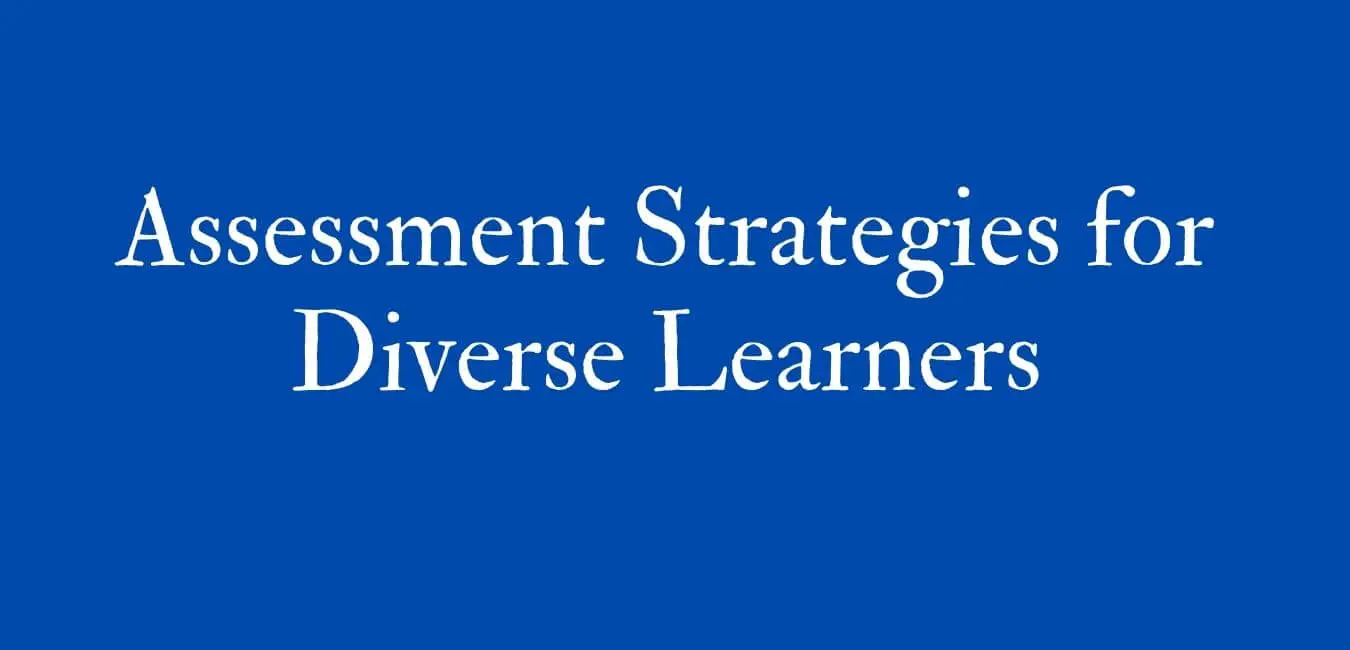Argumentative students can be a challenging task for teachers. While it is important to maintain a calm and rational classroom atmosphere, it is also necessary to assert one’s own authority when necessary.
There are some steps that can be taken to help handle argumentative students. First, it is important to understand that argumentation is a key part of the learning process. It helps students gain a better understanding of complex issues and arguments. Second, it is important to be patient with argumentative students.
While they may appear argumentative at first, most eventually want to learn and grow. In the classroom, students can be a handful, sometimes even more. But there are some ways to deal with them that are bound to work.
In this article, we will outline the procedures to handle students that argue with their teachers, as well as how to avoid getting into arguments with them.
Types of teacher-student arguments
Arguments between teachers and students are a common occurrence in schools. They can range from simple disagreements to more serious disputes that can lead to conflict. There are different types of teacher-student arguments, and each has its own set of consequences.
Some of the most common include factual disputes, moral disputes, logical fallacies, and personal attacks. Each type of argument has its own set of rules that can help prevent problems from arising. By knowing the rules of each type of argument, teachers can better protect themselves and their students from conflict.
Factual disputes
Argumentative students can be a challenge for any teacher, but they can be especially challenging when disputes arise over factual information. When factual disputes arise between a teacher and a student, it is important to take a step back and try to understand the situation from both sides. From there, it may be possible to find a solution that is both equitable and practical.
Moral disputes
Arguments between teacher and student can be a difficult topic to navigate. Often, there is a moral component to these disputes. For instance, if a student argues that their teacher is incorrect in their assessment of material, this can be seen as a moral dispute.
While it can be difficult to handle an argumentative student, it is important to remember that they are only acting out because they feel wronged. It is important to approach these situations patiently and with understanding.
Once the student has been understood and listened to, it may be helpful to offer alternatives or explanations for why the teacher’s view might be correct. Ultimately, though, the focus should always remain on resolving the dispute through dialogue and communication rather than confrontation or anger.
Logical fallacies
Argumentative students can be a pain for any teacher, but especially when they are constantly using logical fallacies in their arguments. There are a few things that can be done to help deal with these students in a productive way.
One key thing is to remember that not all arguments are created equal. Some arguments are based on valid points, while others may be based on flawed logic or faulty assumptions. It is important to be able to identify which type of argument a student is using and then respond accordingly.
Personal attacks
Arguments between a teacher and a student can be difficult to handle. Personal attacks and arguments that are not based on reality can quickly lead to a deterioration in the relationship between teacher and student.
When disagreements arise, it is important for both parties to approach the situation with an open mind. If there are clear issues that need to be addressed, it is helpful for teachers to take notes during class so that they have a written record of what was discussed. In addition, remaining calm and respectful will help prevent future arguments from happening.
Why Do Students Argue with Teachers?
Arguably, one of the most common issues teachers face in the classroom is managing argumentative students. While there are many reasons why a student might argue with a teacher, there are five main reasons that seem to stand out:
1. Poor communication
One of the most common reasons students argue with teachers is because they don’t feel like they’re being heard. They may feel like the teacher isn’t listening to them or isn’t taking their arguments seriously. As a result, they become frustrated and resort to arguing in order to get their point across.
2. Misunderstandings
Sometimes, what one person perceives as an argument is actually just a misunderstanding. For example, if a student doesn’t understand what the teacher is asking them to do, they may start arguing in order to get clarification.
3. Defensiveness
Sometimes, students may become defensive when they’re arguing. This can be a real challenge in the classroom. For example, when they feel like they are not being treated fairly in regards to the grading system or the way that they are being asked to complete assignments.
4. Disruptive Behavior
Sometimes, a student may simply be trying to get attention by causing a disruption in the classroom. This happens when the student feels like he knows more than his teacher about a given topic and decides to argue their point.
5. Lack of respect
Finally, students who argue with teachers often lack respect for the authority of the teacher. They may not understand why a particular instruction is necessary, or they may not take the time to listen when an explanation is given. In these cases, a simple argument can quickly turn into a confrontation.
Why Should You Never Argue With Students?
Disciplining a student can be difficult, but when it comes to arguing with them, it’s best to avoid it altogether. Here are four reasons why you should never argue with your students:
1. It can be counterproductive. When you argue with a student, you’re not likely to get them to change their behavior. In fact, they may just become more defiant and argumentative.
2. It can damage your relationship with them. If you’re constantly arguing with your students, they’re going to start seeing you as someone they can’t trust or respect. This will only make it harder for you to discipline them in the future.
3. It can be a waste of time. Arguing with a student only serves to further anger and frustrate them. In the end, it will probably do more harm than good.
4. It can lead to conflict with other students. When you’re constantly arguing with one student, it can create tension between you and the other students in your class. This can have a negative impact on their education and development as individuals.
5. It can reflect poorly on you. When potential employers see a record of you arguing with your students, it will likely not reflect well on you. They’ll likely see you as a difficult person who isn’t able to manage difficult people.
How can teachers avoid arguments with students?
It’s not always easy to deal with an argumentative student, but there are a few things you can do to try and avoid arguing with your students.
1. From the beginning, be clear about your expectations. Make sure you understand what the student is looking for and set reasonable goals. If you don’t know what they want, ask! This will help avoid confusion and argument down the road.
2. Avoid personal attacks or negative comments. This will only make the student defensive and more likely to argue back. Instead, try to provide constructive feedback that leads to improvement.
3. Set boundaries. If a student crosses your boundaries, be firm but understanding in setting limits on their behavior. Remember, you are not their parent, and they need to respect your authority as a teacher!
4. Don’t be afraid to speak up. If you feel like you’re being overwhelmed, reach out to your supervisor or the school board for assistance. They may be able to provide resources or intervene if necessary.
5. Be patient. It can take a while for students to understand and comply with your wishes. Be willing to give them time and patience to learn.
6. Make compromises when necessary. Sometimes it’s impossible to get everyone on the same page, but that doesn’t mean you have to fight every battle. Try making compromises in order to achieve a common goal without having to deal with an argument later on down the line.
7. Stay calm and collected. Arguing with a student will only make the situation worse, so take a deep breath and try to remain patient. If you start getting angry, it will only make the situation worse. Remember, arguing is not going to resolve the issue at hand, it will only escalate it.
How to Handle an Argumentative Student
Argumentative students can be a challenge for any educator. There are many different techniques that can be used to handle these students:
1. Establish rules and expectations
Make sure that all students are aware of the school’s policy on behavior and arguing. This policy should be made clear to all students during orientation and reinforced throughout the year.
Make sure that your students know exactly how you want the class to run before any arguments begin. This way, there won’t be any confusion or misinterpretation on either side.
2. Keep a calm demeanor
Another key factor in successfully handling an argumentative student is being calm and patient. Obviously, you don’t want them to get out of control, but you also don’t want to lose your temper yourself. Try to keep your voice level and avoid getting angry yourself.
3. Don’t take it personally.
It is important not to respond in an emotional way. Instead, try to remain calm and understanding while addressing the specific issues your student is bringing up. If you are unable to resolve the issue through conversation, then consider using a Discipline Intervention Plan (DIP). A DIP can help you manage and discipline your students in a way that is both effective and respectful.
4. Don’t give in to their demands.
Argumentative students often try to get their way by demanding things that are not reasonable. Resist the temptation to give in to these demands, as this will only make the situation worse.
5. Give them a chance to explain.
Encourage them to voice their opinions and present evidence rather than jump to conclusions. This will help you understand where they are coming from and may lead to a resolution that everyone is happy with.
6. Encourage open dialogue
Argumentative students need opportunities to have an open dialogue with classmates and teachers. Discussing ideas and opinions openly can help improve understanding and communication within the classroom.
7. Set Boundaries
When it comes to managing argumentative students in class, setting boundaries is key. Make sure that you keep your cool and don’t get drawn into an argument – no matter how provocative or frustrating the student might be. Instead, stick to your guns and set clear expectations for behavior in class (e.g., no disruptive behavior).
8. Keep track of the discussion.
Not all conversations within the classroom will be verbal; it is important to keep track of which conversations are taking place through body language, facial expressions, and other nonverbal cues.
9. Let them know when they are speaking out of turn
Many argumentative students enjoy speaking out of turn in order to get a reaction from their teacher or classmates. When this happens, let them know so that they can stop it right away.
10. Be Patient
If a disagreement persists, try to find common ground or talk to the student about why they disagree. Although disagreements may be frustrating, they are a sign of growth and learning in the classroom.
11. Avoid getting drawn into an argument
Many times, teachers find themselves getting drawn into arguments with their argumentative students simply because they don’t want to deal with the issue at hand themselves. Try instead to focus on addressing the issue at hand in a constructive manner.
12. Offer alternative solutions
Oftentimes, when an argument arises, there may be alternative solutions that could work just as well as what the student is proposing. Try encouraging your student toward these solutions instead of arguing about what is “best.”
13. Help them find sources of information that support their stance.
Argumentative students often latch onto any information that supports their position without considering other perspectives or facts. Help your students explore different sources of information so that they can form a more balanced opinion.
14. Use analogies and metaphors.
One of the most effective ways of handling argumentative students is by using analogies and metaphors. Analogies help illustrate a point, and metaphors provide an interesting way of explaining something.
For example, if a student is arguing about whether or not Pluto is a planet, an analogy might be to say that Pluto is like a rock in space. This analogy helps make the argument more understandable and allows the educator to continue discussions without getting bogged down in scientific terminology.
15. Use positive reinforcement.
Sometimes, simply rewarding good behavior can motivate students to change their behavior. In order to effectively handle argumentative students in class, teachers need to have a plan for dealing with difficult situations.
One approach is to create positive reinforcement systems, such as giving stars for participation or raising grades based on good academic conduct. This will help encourage students to behave responsibly and respectfully throughout the class.
16. Address the issue, not the student.
When addressing an issue with an argumentative student, it is important to focus on the issue at hand. Argumentative students often become defensive and refuse to listen when their arguments are dismissed. It can be difficult to get them to engage in a constructive dialogue about the issue if they are not open to considering alternate perspectives.
Attempting to address the issue at hand will usually result in a more receptive attitude from the student. If they continue to be argumentative, it may be helpful to consider disciplinary measures such as suspension or expulsion.
17. Offer solutions, not criticism.
Argumentative students can be a challenge to teach. Often, the best way to handle them is to provide solutions, not criticism. When responding to an argument, it is important to be clear and concise.
18. Avoid using sarcasm or insults.
One important step is to avoid sarcasm and insults. When responding to an argumentative student, it’s important to remain calm and respectful. This will help diffuse any potential tension and allow for a more productive discussion. Using sarcasm or insults will only further anger the student and lead to conflict.
19. Help them understand the consequences of their actions.
Argumentative students can be a challenge for any educator. Handling these students effectively can often require understanding the consequences of their actions. While some consequences may be obvious, others may not.
By educating students about the various consequences of their actions, educators can help them learn to handle themselves respectfully and productively in discussions and other academic settings.
20. Use “Redirections”
Another technique that can be used with argumentative students is called “redirection.” Redirection involves changing the subject matter of the discussion so that it no longer revolves around the argumentative student.
This can be done by asking questions about the topic being discussed, showing examples from other areas of knowledge, or even making jokes. By doing this, educators hope to take away some of the attention that has been focused on the argumentative student and turn it towards more constructive pursuits.
Final Thoughts
Argumentative students are a challenge to educators. They are often seen as disruptive and uncooperative in the classroom. However, with the right tools, these students can be managed effectively and become contributing members of the class.
One of the most important things to remember when dealing with argumentative students is that they need to feel heard. Many times, these students are simply trying to get attention by being confrontational. If you can take the time to listen to them and understand their point of view, they will be more likely to cooperate.
It is also important to set clear boundaries for these students. They need to know what is and is not acceptable behavior in the classroom. This includes establishing rules for debate and discussion. If these rules are not followed, then there should be consequences for bad behavior. Thanks For Your Time!


















